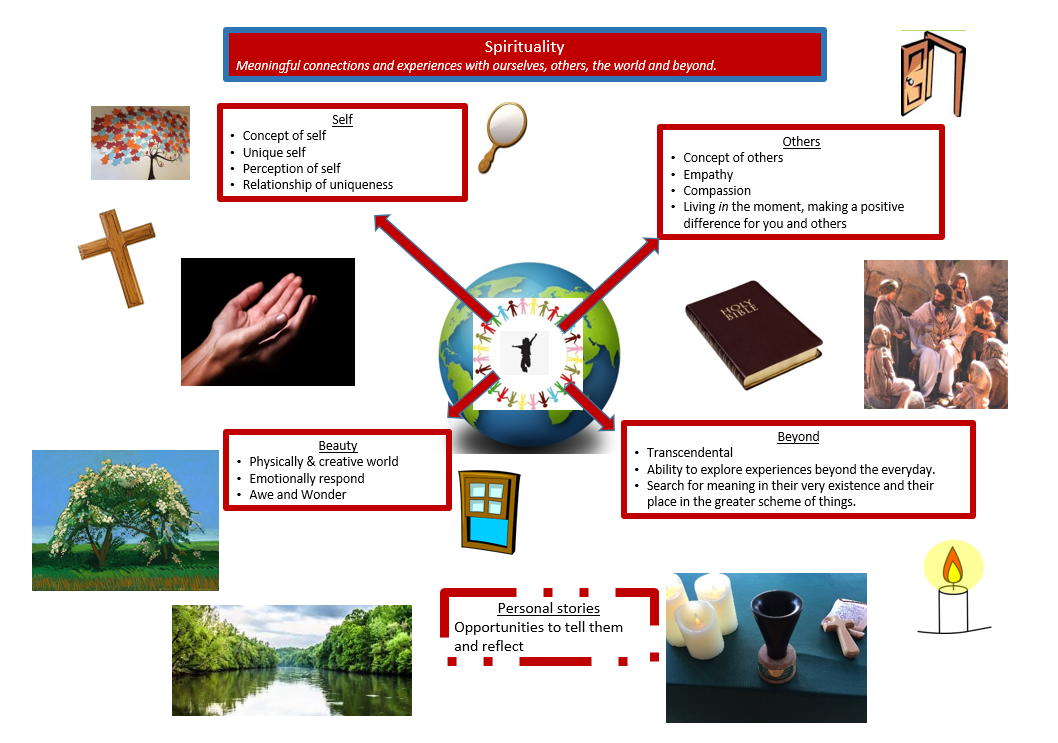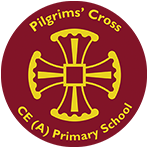Being a Church School
Pilgrims' Cross Primary School opened in September 2013 and was one of the last Church of England schools to be built. We have a fantastic, purpose-built building, set in extensive grounds. Being a church school is important to us, as we believe the underpinning ethos and values of the school lead to the development of our pupils as both physical and spiritual beings. In our times of collective worship, we discuss and reflect on the values and teachings of the Christian faith, guided by the Church of England. In RE and other curriculum opportunities, we also openly discuss other faiths and viewpoints. The children are encouraged to question and discuss what they do and don't believe. This culture of being curious about faith, life and learning, is key to the school's culture and this was celebrated in our 2024 SIAMS (Church school) Inspection:
- "The strongly embedded Christian vision is intrinsically linked to the qualities of the Christian understanding of the Holy Trinity. This is lived by adults through their service to pupils and their families.
- Opportunities for spiritual growth are expertly woven through the wider curriculum. As a result, pupils are able to articulate their responses to awe and wonder.
- Collective worship is highly engaging and thoughtfully planned. Bible stories regularly reinforce the Christian vision and associated values. This fosters spiritual growth for those present.
- The strong relationships within the school community embody hope and trust. Adults model the values of love and courage which creates a nurturing culture directly benefiting the wellbeing of others.
- Pupils are challenged by a progressive curriculum for religious education (RE). This strengthens their understanding of a variety of religious and non-religious worldviews."
The teachers guide the children through a carefully-planned RE Curriculum. This curriculum gives the children the opportunity to discuss different themes such as WATER, LOVE, and SACRIFICE while looking at other religions compared to the Christian Faith. This world view of faith and belief gives children the knowledge of different religions and also lets them explore what the Christian Faith has to offer.
Alongside the Religious Education curriculum, the school encourages the children to develop their spirituality by giving them many awe-inspiring moments, time to reflect and developing times for children to follow their own lines of discussion and inquiry. These moments also happen spontaneously, (not planned) and these are encouraged and time is given to explore. We feel it is really important for children to experience these moments and develop their own personal spirituality.
"The well-defined language of spirituality provides a clear framework for discussion. Activities encourage pupils to examine themselves or look outward to see how they can make a difference. This prompts a life-enhancing, ‘transformational attitude’ that adults weave into learning." (SIAMS inspection report, June 2024)

As a church school, we have the advantage of strong and supportive links with our local church, St Mary's, Andover. The Church workers and clergy visit the school on a regular basis, they lead collective worship, run a community café, guide the children on tours of the church, lead services in the church for our children and have representatives on our Governing Body.
For more information about our linked local church please visit:
We are also affiliated to the Diocese of Winchester & Portsmouth. More information about their Education Team can be found here:
“Church Schools are as concerned as any other school to equip pupils for lives marked by rapid change, global competition and insecurity. But Church Schools know in their viscera that this is not just about acquiring skills and good examination results. It is about forming people who have the moral strength and spiritual depth to hold to a course and weather ups and downs. It is about forming people who know that economic competition is not more important than family life and love of neighbour, and that technical innovation is not more important than reverence for the beauty of creation. It is about forming people who, however academically and technically skilful, are not reduced to inarticulate embarrassment by the great questions of life and death, meaning and truth. Church Schools themselves embody the truth that a context of firm principles suffused by faith and love is the best and right basis for learning and growing.” Robert Runcie
